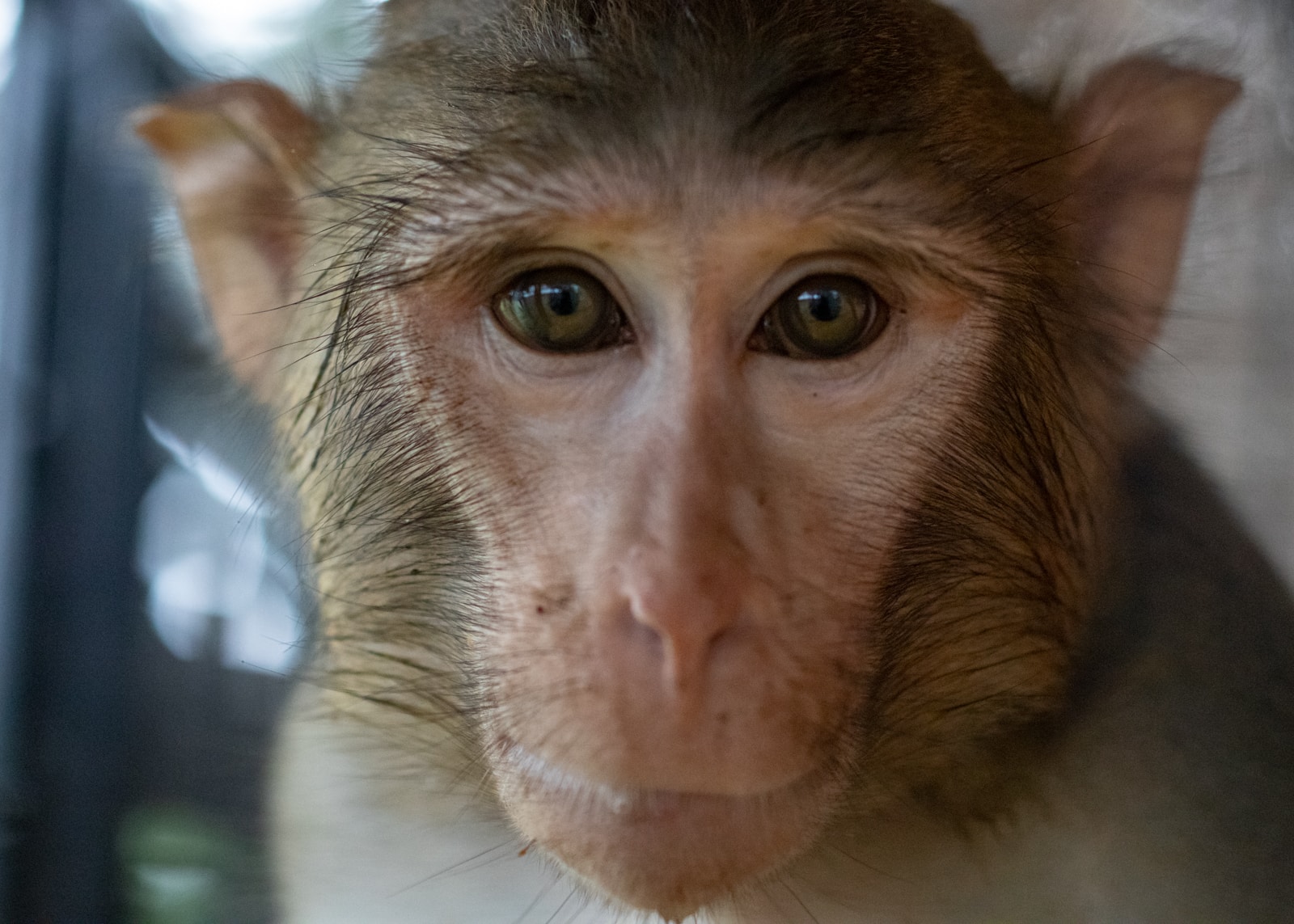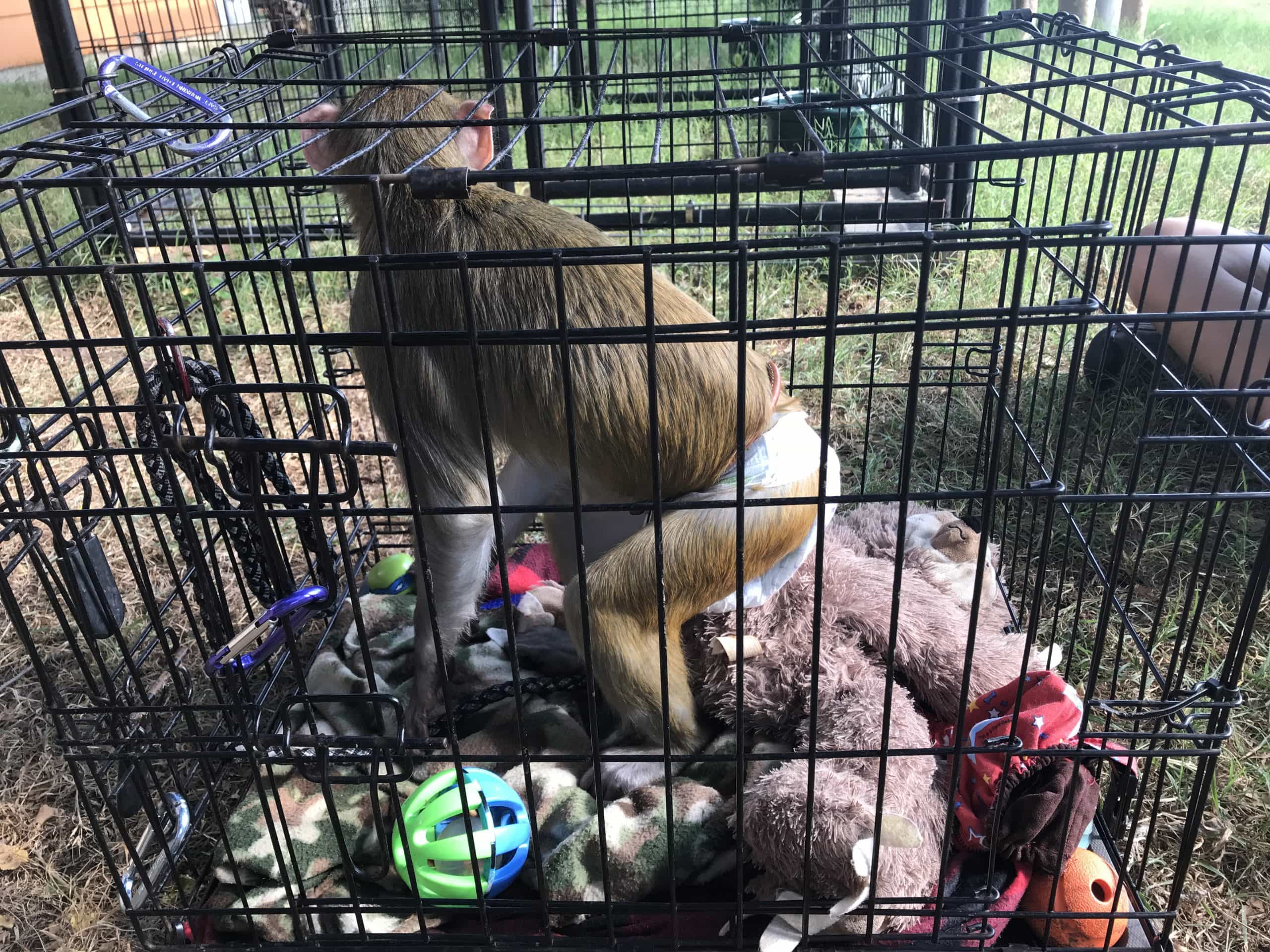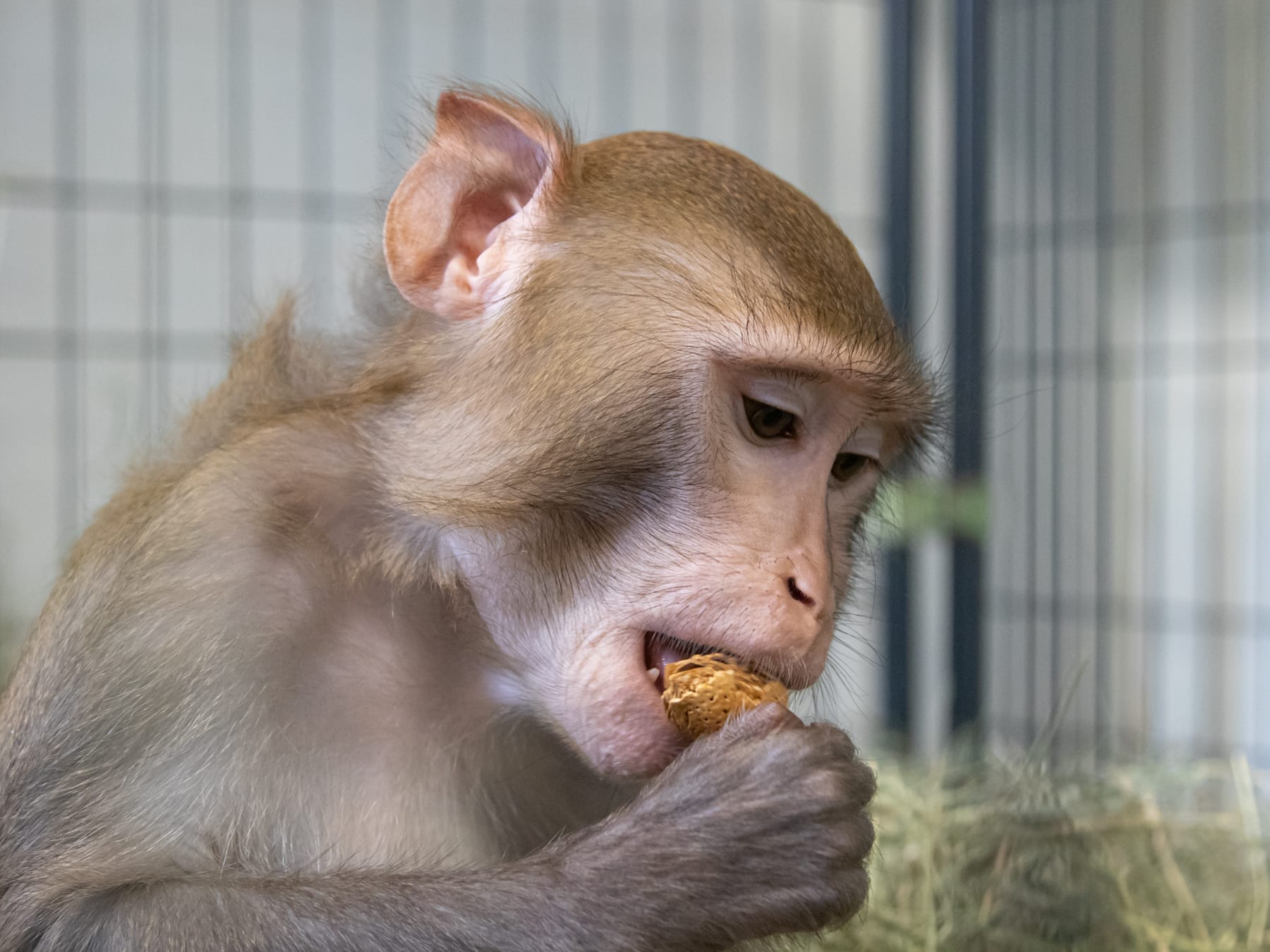Louie’s Story
After almost thirty years of working with primates, and witnessing all types of tragic circumstances, you might think I would be mostly immune to the frequent travesties heaped on our primate relatives but that couldn’t be further from the truth. When a young monkey arrived at the sanctuary a few months ago I was reminded yet again of what painful and frustrating lives captive wildlife often live.
We were first alerted to the situation though a Facebook message posted to our sanctuary page. Immediately we knew the situation was dire and we would need to act quickly for both the monkey’s and the human’s sake.
A young male rhesus macaque had just violently attacked his “owner” when she was attempting to put him back in his wire dog kennel. Though we’re certain this wasn’t the first time he had displayed his displeasure at being forced into small confinement, it was a very physical and angry interaction and the woman was badly shaken (but fortunately not badly injured).
The woman’s partner was also badly shaken and very concerned. After some discussion they both came to the agreement that the 4-year-old monkey had to go. The request was especially urgent because they were staying in an RV in a park several hours away from our sanctuary and they couldn’t risk letting him out again. While we made arrangements to transport him to the sanctuary Louie waited, locked inside a small 24” wire dog crate with diapers tightly duct-taped to his body.
When staff member Jennifer Draiss arrived at the park to transport Louie to his new forever home, she found a very anxious young monkey spinning relentlessly in his tiny crate, a leather dog collar buckled securely around his waist. The “owner” explained that Louie was purchased from a private breeder in Texas at just two days old and was taken home to be raised as a pet. Louie’s canines were subsequently filed down and he was castrated.

Rhesus macaques, a species native to mainland Asia, have evolved to thrive in multi-male, multi-female groups where they learn from troop members and follow a specific hierarchy mostly determined by the females. After birth, the baby will spend most of the first six months of life clinging almost constantly to his or her mother while learning what to eat, who to show deference to, and what dangers to avoid. They also learn to communicate with body postures, facial expressions, and different vocal calls. A need to learn and express this complex behavior is hard-wired into their very being and is part of what has enabled them to be successful in the wild.
Forced confinement of these monkeys as “pets” therefore creates inconsolable stress for them. In an effort to handle their anxiety, they develop abnormal behaviors such as repetitive spinning, somersaulting, saluting, or self-biting. These are behaviors almost never seen in their wild counterparts and, once established, will continue to some degree for the rest of their life.
Such is the life Louie was born into, a living commodity for a breeder and an exotic and unusual “pet” for an enthralled buyer. Fortunately, however, this young monkey’s life took a turn for the better.

Louie arrives at the sanctuary
When Louie arrived at OPS, the first thing I did was to gently reach through the wire kennel and patiently remove the tape holding his diaper. Once free of the tape he ripped his diaper off and threw it down emphatically. Next was to remove the leather dog collar bound around his waist. This was more problematic because I had to be careful not to get bitten and also careful not to further traumatize him. After some repositioning I was able to get blunted garden shears under the edge of the collar and cut him free. Louie immediately began rubbing the area where the collar used to be, the tissue around his waist indented from having the collar on for so long.
With the diaper and collar removed it was time to let Louie out into his temporary enclosure. He ran back and forth around the area getting the lay of his new home and when he discovered the bucket of water he began to play and splash as if nothing bad had ever happened to him. As he jumped up on a platform we noticed that he was moving strangely, with one shoulder tilted down and a somewhat sideways gate as he walked. At first we thought it was from being confined in such a small crate for so long but it quickly became apparent that he had suffered some serious injuries in his young life. Later, x-rays confirmed our suspicions: Louie had a dislocated left elbow and a broken right shoulder and clavicle. These were old injuries and his little body healed around the insults as best it could but he will never move normally again. We also found that whoever had filed his canines down left the pulp exposed which can be extremely painful. Fortunately, these were baby teeth and he will grow beautiful new canines soon.
In spite of his life getting off to such a tragic start, Louie’s spirit was never broken and his innate curiosity is still intact. He enjoys all types of food and enrichment, watches the other monkeys with great interest, and is rarely without his favorite sloth toy. He doesn’t seem to notice his physical handicaps and plays with the gusto of youth. He has already met and interacted with Poindexter, an older male retired from research, and this spring he will be introduced to other monkeys to see who he wants to befriend.


